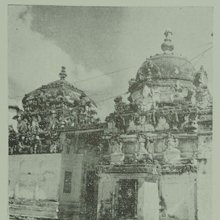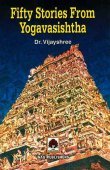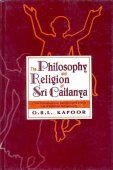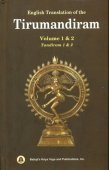Mukti: 30 definitions
Introduction:
Mukti means something in Buddhism, Pali, Hinduism, Sanskrit, Jainism, Prakrit, the history of ancient India, Marathi, Hindi, Tamil. If you want to know the exact meaning, history, etymology or English translation of this term then check out the descriptions on this page. Add your comment or reference to a book if you want to contribute to this summary article.
Images (photo gallery)
In Hinduism
Purana and Itihasa (epic history)
Source: archive.org: Shiva Purana - English TranslationMukti (मुक्ति) refers to “salvation”, which are mentioned as obtainable through the worship of Śiva, according to the Śivapurāṇa 2.1.14:—“[...] for achieving glory with plenty of vehicles, worship for a thousand times shall be performed. A person desiring salvation (mukti) shall worship Śiva five crores of times with deep devotion. [...] with Śamī leaves he will secure salvation (mukti). With Mallikā flowers he will secure an auspicious woman”.
Source: Cologne Digital Sanskrit Dictionaries: The Purana Index1a) Mukti (मुक्ति).—An Uttama siddhi.*
- * Brahmāṇḍa-purāṇa IV. 5. 23; 36. 51.
1b) One of the two Gods forming a boat to cross the ocean of saṃsāra;1 four-fold of which Gayā is best.2
Source: Shodhganga: The saurapurana - a critical studyMukti (मुक्ति) refers to “release” according to the Purāṇas.—The word mokṣa means release (mukti) and it denotes release from the bondage of the mundane life and the repeated cycles of birth and death. [...] The Purāṇas which are dedicated to the glorification of a particular deity uphold that emancipation consists in reaching the blessed region inhabited by that deity.
The Saurapurāṇa refers the term like mokṣa, mukti, nirvāṇa and nirvṛti for emancipation. This Purāṇa has declared in undubious terms that the realisation of indentity between the individual and supreme consciousness breaks the fetters of this worldly existence and the devotee gets parama nirvāṇa. It is by means of unbounded grace of Lord Śiva that an individual self can expect to reach this highest state of redemption. It is a divine gift conferred upon a devout devoitee of Śiva. [...] Śiva gives mukti to his devotees and it is only Śivabhakti which is able to free a person from the bondage of Saṃsāra.

The Purana (पुराण, purāṇas) refers to Sanskrit literature preserving ancient India’s vast cultural history, including historical legends, religious ceremonies, various arts and sciences. The eighteen mahapuranas total over 400,000 shlokas (metrical couplets) and date to at least several centuries BCE.
Vaishnavism (Vaishava dharma)
Source: archive.org: A History of Indian Philosophy (vaishnavism)Mukti (मुक्ति, “emancipation”) is the realization of God, accompanied as a consequence by that cessation of the bondage of egoism which is the same thing as existence in one’s true nature. Emancipation (mukti) may be achieved both in life and after death; when one realizes the true nature of God, one’s false apprehension of His nature vanishes and this is one’s state of mukti ; at death also there may be a revelation of God’s true nature, and a direct and immediate realization of His nature as God. This existence in one’s own nature is the same thing as the realization of one’s own nature as the supreme soul (paramātman). Bhakti is also described as being itself the emancipation (mukti). True philosophic knowledge (tattva-jñāna) is the secondary effect of bhakti.
Source: Pure Bhakti: Bhagavad-gita (4th edition)Mukti (मुक्ति) refers to “complete emancipation from the bondage of the material energy that is expressed by the false conceptions of ‘I’ and ‘mine’. There are five types of mukti: sārūpya–obtaining the same form as Bhagavān; sāmīpya–living in close proximity to Bhagavān; sālokya–living on the same planet as Bhagavān; sārṣṭi–having the same opulence as Bhagavān;and sāyujya–becoming one with Bhagavān by merging with His bodily effulgence, the brahmajyoti. Of these five, sāyujya is rejected by the Vaiṣṇavas”. (cf. Glossary page from Śrīmad-Bhagavad-Gītā).
Source: Pure Bhakti: Brhad BhagavatamrtamMukti (मुक्ति) refers to:—Liberation. (cf. Glossary page from Śrī Bṛhad-bhāgavatāmṛta).

Vaishnava (वैष्णव, vaiṣṇava) or vaishnavism (vaiṣṇavism) represents a tradition of Hinduism worshipping Vishnu as the supreme Lord. Similar to the Shaktism and Shaivism traditions, Vaishnavism also developed as an individual movement, famous for its exposition of the dashavatara (‘ten avatars of Vishnu’).
Vastushastra (architecture)
Source: Wisdom Library: Vāstu-śāstraMukti (मुक्ति, “liberation”) refers to one of the ten effects of vyaya (“loss”), according to the Mānasāra. Vyaya is the second of the āyādiṣaḍvarga, or “six principles” that constitute the “horoscope” of an architectural or iconographic object. Their application is intended to “verify” the measurements of the architectural and iconographic object against the dictates of astrology that lay out the conditions of auspiciousness.
The particular vyaya (e.g., mukti) of all architectural and iconographic objects (settlement, building, image) must be calculated and ascertained. This process is based on the principle of the remainder. An arithmetical formula to be used in each case is stipulated, which engages one of the basic dimensions of the object (breadth, length, or perimeter/circumference). Like in the case of the fruits of āya, all ten effects of vyaya must be considered as auspicious.

Vastushastra (वास्तुशास्त्र, vāstuśāstra) refers to the ancient Indian science (shastra) of architecture (vastu), dealing with topics such architecture, sculpture, town-building, fort building and various other constructions. Vastu also deals with the philosophy of the architectural relation with the cosmic universe.
Shaivism (Shaiva philosophy)
Source: DSpace at Pondicherry: Siddha Cult in Tamilnadu (shaivism)Mukti (मुक्ति).—According to the Kaulajñānanirṇaya, mukti (liberation) can be achieved with the perfect knowledge of Śiva. A liberated man can liberate others.

Shaiva (शैव, śaiva) or Shaivism (śaivism) represents a tradition of Hinduism worshiping Shiva as the supreme being. Closely related to Shaktism, Shaiva literature includes a range of scriptures, including Tantras, while the root of this tradition may be traced back to the ancient Vedas.
Vedanta (school of philosophy)
Source: Google Books: Sannyasa UpanishadMukti (मुक्ति) refers to “liberation”, according to the commentary on the Kuṇḍika-upaniṣad verse 28.—The worshippers of the pure, resplendent Brahman (śabala-brahma) enter the world of Brahma (brahmaloka), that is, the sphere of Hiraṇyagarbha, along the path of the Sun (sūryamārga, or uttarāyaṇa-mārga) by exiting from the crown of the head (brahma-randhra) through the suṣumṇā canal; and there they are engaged in their quest for the attributeless Brahman till the end of the kalpa (till pralaya, or great dissolution, takes place). Having lived there till such time, they ultimately merge with Brahman on the attenuation of their subtle desires and attractions (vāsanā-kṣaya). Thereafter they never return to the plane of relative existence. This is the gradual liberation (krama-mukti) attained by the knowers of Brahman with attributes (saviśeṣa brahmajñānī). On the other hand, the knowers of the attributeless, absolute Brahman (nirviśeṣa brahmajñānī) will attain direct, instant liberation (sadyo-mukti), here and now (ihaiva).
Source: Wikisource: Ashtavakra GitaMukti refers to “liberation”, according to the first chapter of the Aṣṭāvakragītā (5th century BC), an ancient text on spirituality dealing with Advaita-Vedānta topics, rendered as a diaologue between Aṣṭāvakra and Janaka.—Accordingly, “If you are seeking liberation (mukti), my son, shun the objects of the senses like poison. Practise tolerance, sincerity, compassion, contentment and truthfulness like nectar. You are neither earth, water, fire, air or even ether. For liberation know yourself as consisting of consciousness, the witness of these. If only you will remain resting in consciousness, seeing yourself as distinct from the body, then even now you will become happy, peaceful and free from bonds. [...]”.

Vedanta (वेदान्त, vedānta) refers to a school of orthodox Hindu philosophy (astika), drawing its subject-matter from the Upanishads. There are a number of sub-schools of Vedanta, however all of them expound on the basic teaching of the ultimate reality (brahman) and liberation (moksha) of the individual soul (atman).
Shaktism (Shakta philosophy)
Source: Google Books: ManthanabhairavatantramMukti (मुक्ति) [=Muktita?] refers to “liberation”, according to the Jayadrathayāmala verse 1.3.70ff.—Accordingly, “The imperishable and glorious energy (saṃbhūti) in the condition of the enjoyer, the object of enjoyment and enjoyment (itself) in spiritual disciplines (sādhana) and the like is in every respect Bimbī, who is considered to be the eternal Mother. And she is pure, attained through liberation (muktita—muktitaḥ pratipadyate). No association with impurity is perceived independently of her”.
Source: Brill: Śaivism and the Tantric Traditions (shaktism)Mukti (मुक्ति) refers to “liberation”, according to Sāhib Kaul’s Śārikāstrotra.—Accordingly, “[...] He who recites your next syllable, which is īśa with abja and the one above the left ear, his enemy, although invincible even for all the gods, will instantly, in the wink of an eye, become a guest in the house of Death. He who remembers your next syllable, which is īśa together with vaktravṛtta and vahni, will have at his disposal ‘enjoyment’, liberation (mukti), the method of real vicāra, and devotion. [...]”.

Shakta (शाक्त, śākta) or Shaktism (śāktism) represents a tradition of Hinduism where the Goddess (Devi) is revered and worshipped. Shakta literature includes a range of scriptures, including various Agamas and Tantras, although its roots may be traced back to the Vedas.
In Buddhism
Tibetan Buddhism (Vajrayana or tantric Buddhism)
Source: academia.edu: The Structure and Meanings of the Heruka MaṇḍalaMukti (मुक्ति) is the name of a Vīra (hero) who, together with the Ḍākinī named Muktikī forms one of the 36 pairs situated in the Jalacakra, according to the 10th century Ḍākārṇava chapter 15. Accordingly, the jalacakra refers to one of the three divisions of the saṃbhoga-puṭa (‘enjoyment layer’), situated in the Herukamaṇḍala. The 36 pairs of Ḍākinīs and Vīras [viz., Mukti] are white in color; the shapes of their faces are in accordance with their names; they have four arms; they hold a skull bowl, a skull staff, a small drum, and a knife..

Tibetan Buddhism includes schools such as Nyingma, Kadampa, Kagyu and Gelug. Their primary canon of literature is divided in two broad categories: The Kangyur, which consists of Buddha’s words, and the Tengyur, which includes commentaries from various sources. Esotericism and tantra techniques (vajrayāna) are collected indepently.
In Jainism
General definition (in Jainism)
Source: archive.org: TrisastisalakapurusacaritraMukti (मुक्ति) refers to “freedom from greed” and represents one of the ten-fold dharma (i.e., Yatidharma) capable of leading across saṃsāra, according to chapter 3.3 [sumatinātha-caritra] of Hemacandra’s 11th century Triṣaṣṭiśalākāpuruṣacaritra: an ancient Sanskrit epic poem narrating the history and legends of sixty-three illustrious persons in Jainism.
Accordingly, as Sumatinātha said:—“The sources of pride—youth, power, beauty, etc.—have become subdued from penance, like evil spirits of a sorceror reduced to servitude from the power to summon them. Yatidharma, handed down orally by the Blessed Ones, is the best boat without impediments for crossing the ocean of saṃsāra. [...] Freedom from greed (mukti) is the destruction of the thirst for inner and outer possessions. [...] So the ten-fold dharma, like a spotless wishing-jewel, capable of leading across saṃsāra, is attained in the world by merit”.

Jainism is an Indian religion of Dharma whose doctrine revolves around harmlessness (ahimsa) towards every living being. The two major branches (Digambara and Svetambara) of Jainism stimulate self-control (or, shramana, ‘self-reliance’) and spiritual development through a path of peace for the soul to progess to the ultimate goal.
India history and geography
Source: Institut Français de Pondichéry: The Shaivite legends of KanchipuramMukti (मुक्ति) (i.e., Śiva) (in Sanskrit) refers to the Tamil Mutti, and represents one of the proper nouns mentioned in the Kanchipuranam, which narrates the Shaivite Legends of Kanchipuram—an ancient and sacred district in Tamil Nadu (India). The Kanchipuranam (mentioning Mukti) reminds us that Kanchipuram represents an important seat of Hinduism where Vaishnavism and Shaivism have co-existed since ancient times.

The history of India traces the identification of countries, villages, towns and other regions of India, as well as mythology, zoology, royal dynasties, rulers, tribes, local festivities and traditions and regional languages. Ancient India enjoyed religious freedom and encourages the path of Dharma, a concept common to Buddhism, Hinduism, and Jainism.
Languages of India and abroad
Marathi-English dictionary
Source: DDSA: The Molesworth Marathi and English Dictionarymukti (मुक्ति).—f (S) The enlargement of the spirit from corporeal and individual existence, exemption of it from further migration, and reabsorption of it into its source, the divine monad Brahma, the substratum and substance of universal being. mukti is distinguished into sāyujya, salōkatā, samīpatā, sarūpatā. 2 Liberation, loosening, setting free: also liberated state.
Source: DDSA: The Aryabhusan school dictionary, Marathi-Englishmukti (मुक्ति).—f Final beatitude. Liberation.
Marathi is an Indo-European language having over 70 million native speakers people in (predominantly) Maharashtra India. Marathi, like many other Indo-Aryan languages, evolved from early forms of Prakrit, which itself is a subset of Sanskrit, one of the most ancient languages of the world.
Sanskrit dictionary
Source: DDSA: The practical Sanskrit-English dictionaryMukti (मुक्ति).—f. [muc-ktin]
1) Release, liberation, deliverance; स मुक्तिः सातिमुक्तिः (sa muktiḥ sātimuktiḥ) Bṛ. Up.3.1.3.
2) Freedom, emancipation.
3) Final beatitude or emancipation, absolution of the soul from metempsychosis; अधिगत्य जगत्यधीश्वरादथ मुक्तिं पुरुषोत्तमात्ततः (adhigatya jagatyadhīśvarādatha muktiṃ puruṣottamāttataḥ) N.2.1. (where mukti has sense 1 also).
4) Leaving, giving up, abandoning, avoiding; संसर्गमुक्तिः खलेषु (saṃsargamuktiḥ khaleṣu) Bhartṛhari 2.62.
5) Throwing, hurling, letting off, discharging.
6) Unloosing, opening.
7) Discharge, paying off (as a debt).
Derivable forms: muktiḥ (मुक्तिः).
Source: Cologne Digital Sanskrit Dictionaries: Shabda-Sagara Sanskrit-English DictionaryMukti (मुक्ति).—f.
(-ktiḥ) 1. Final beatitude, the delivery of the soul from the body and exemption from further transmigration; the re-absorption of the emancipated spirit into its great primary source, identification with God. 2. Liberation, setting or becoming free or loose. E. muc to let loose, aff. ktin .
Source: Cologne Digital Sanskrit Dictionaries: Benfey Sanskrit-English DictionaryMukti (मुक्ति).—i. e. 2. muc + ti, f. 1. Leaving off, [Bhartṛhari, (ed. Bohlen.)] 2, 52. 2. Deliverance, release (muktiṃ prāpnumaḥ, We shall be released), [Pañcatantra] 106, 1; ii. [distich] 44. 3. The delivery of the soul from the body, and exemption from further transmigration, final beatitude.
Source: Cologne Digital Sanskrit Dictionaries: Cappeller Sanskrit-English DictionaryMukti (मुक्ति).—[feminine] liberation, release from (—°); final emancipation or beatitude; putting off, giving up, relinquishing (—°); casting, throwing, hurling.
Source: Cologne Digital Sanskrit Dictionaries: Monier-Williams Sanskrit-English Dictionary1) Mukti (मुक्ति):—[from muc] f. setting or becoming free, release, liberation, deliverance from ([compound]), [Śatapatha-brāhmaṇa] etc., etc.
2) [v.s. ...] final liberation or emancipation, final beatitude (= mokṣa, q.v.), [Kāvya literature; Kathāsaritsāgara]
3) [v.s. ...] abandonment, putting off, giving up ([compound]), [ib.]
4) [v.s. ...] throwing, casting, hurling, shooting, sending, [Harivaṃśa]
5) [v.s. ...] discharge (of a debt; cf. ṛṇa-m)
6) [v.s. ...] Name of a divine being (the wife of Satya), [Catalogue(s)]
Source: Cologne Digital Sanskrit Dictionaries: Yates Sanskrit-English DictionaryMukti (मुक्ति):—(ktiḥ) 2. f. Final beatitude; absorption; liberation.
Source: DDSA: Paia-sadda-mahannavo; a comprehensive Prakrit Hindi dictionary (S)Mukti (मुक्ति) in the Sanskrit language is related to the Prakrit word: Mutti.
[Sanskrit to German]
Sanskrit, also spelled संस्कृतम् (saṃskṛtam), is an ancient language of India commonly seen as the grandmother of the Indo-European language family (even English!). Closely allied with Prakrit and Pali, Sanskrit is more exhaustive in both grammar and terms and has the most extensive collection of literature in the world, greatly surpassing its sister-languages Greek and Latin.
Hindi dictionary
Source: DDSA: A practical Hindi-English dictionaryMukti (मुक्ति):—(nf) salvation, emancipation, deliverance; liberation; release; freedom; exemption, riddance; ~[dātā/prada] a saviour, deliverer, one who brings salvation/emancipation, rescuer; —[dhāma] an abode of salvation; -[patha] the path of salvation; -[patra] a release order, release warrant; -[mārga] see -[patha; -lābha] (achievement of) salvation, deliverance, emancipation; -[senā] liberation army.
...
Kannada-English dictionary
Source: Alar: Kannada-English corpusMukti (ಮುಕ್ತಿ):—
1) [noun] the state of being liberated (from the arbitrary control of another); liberation.
2) [noun] the act of liberating or becoming liberated; liberation.
3) [noun] an abandoning or being abandoned; abandonment.
4) [noun] the act of discharging a weapon from the hand or an arow from the bow.
5) [noun] a freeing from imprisonment.
6) [noun] an untying, unbounding.
7) [noun] a discharging of one’s liability; freedom from debt or other obligation.
8) [noun] the salvation of the soul from being born again and again; emancipation.
Kannada is a Dravidian language (as opposed to the Indo-European language family) mainly spoken in the southwestern region of India.
Tamil dictionary
Source: DDSA: University of Madras: Tamil LexiconMukti (முக்தி) noun < mukti. See முத்தி. [muthi.]
Tamil is an ancient language of India from the Dravidian family spoken by roughly 250 million people mainly in southern India and Sri Lanka.
See also (Relevant definitions)
Starts with (+62): Mukti-bhumi, Mukticintamani, Mukticintamanimahatmya, Muktida, Muktidayaka, Muktidayaki, Muktidhama, Muktidvara, Muktigami, Muktigedi, Muktigrantha, Muktika, Muktikalasha, Muktikallu, Muktikama, Muktikami, Muktikankshin, Muktikantavilasa, Muktikarana, Muktikaranatva.
Ends with (+29): Abhedyavimukti, Adhimukti, Amukti, Atimukti, Banamukti, Bandhanamukti, Bhedyavimukti, Bhuktimukti, Caturmukti, Caturvidhamukti, Cetovimukti, Chetovimukti, Dehavimukti, Ekamukti, Jivanamukti, Jivanmukti, Jovanmukti, Karavimukti, Kramamukti, Lohitamukti.
Full-text (+184): Mutti, Muktimarga, Rinamukti, Sarupya, Atimukti, Amukti, Sayujya, Muktimukta, Muktipati, Sarshtya, Muktimati, Vimukti, Muktikshetra, Banamukti, Bhuktimati, Sarshtita, Vargiya-mukti, Muktivadarahasya, Mukticintamanimahatmya, Muktivadatika.
Relevant text
Search found 125 books and stories containing Mukti, Mugdhi, Mugdi, Mugthi, Mukthi; (plurals include: Muktis, Mugdhis, Mugdis, Mugthis, Mukthis). You can also click to the full overview containing English textual excerpts. Below are direct links for the most relevant articles:
Brihad Bhagavatamrita (commentary) (by Śrī Śrīmad Bhaktivedānta Nārāyana Gosvāmī Mahārāja)
Verse 2.4.225 < [Chapter 4 - Vaikuṇṭha (the spiritual world)]
Verse 2.2.157 < [Chapter 2 - Jñāna (knowledge)]
Verse 2.3.27 < [Chapter 3 - Bhajana (loving service)]
Garga Samhita (English) (by Danavir Goswami)
Verse 4.7.26 < [Chapter 7 - The Story of the Ayodhya Women]
Verse 6.10.14 < [Chapter 10 - In the Description of the Gomatī River, the Glories of Cakra-tīrtha]
Verse 1.14.64 < [Chapter 14 - The Liberation of Śakaṭāsura and Tṛṇāvarta]
Vivekachudamani (by Shankara)
Prasthanatrayi Swaminarayan Bhashyam (Study) (by Sadhu Gyanananddas)
Introduction (Soteriology) < [Chapter 5 - Analysis on the basis of Soteriology]
6. Jīvanamukti (Introduction) < [Chapter 5 - Analysis on the basis of Soteriology]
4. Mukti Mimāṃsā in the Svāminārāyaṇa School (Introduction) < [Chapter 5 - Analysis on the basis of Soteriology]
Bhakti-rasamrta-sindhu (by Śrīla Rūpa Gosvāmī)
Verse 1.2.225 < [Part 2 - Devotional Service in Practice (sādhana-bhakti)]
Verse 1.2.36 < [Part 2 - Devotional Service in Practice (sādhana-bhakti)]
Verse 1.2.57 < [Part 2 - Devotional Service in Practice (sādhana-bhakti)]
Bhajana-Rahasya (by Srila Bhaktivinoda Thakura Mahasaya)
Related products
(+1 more products available)







